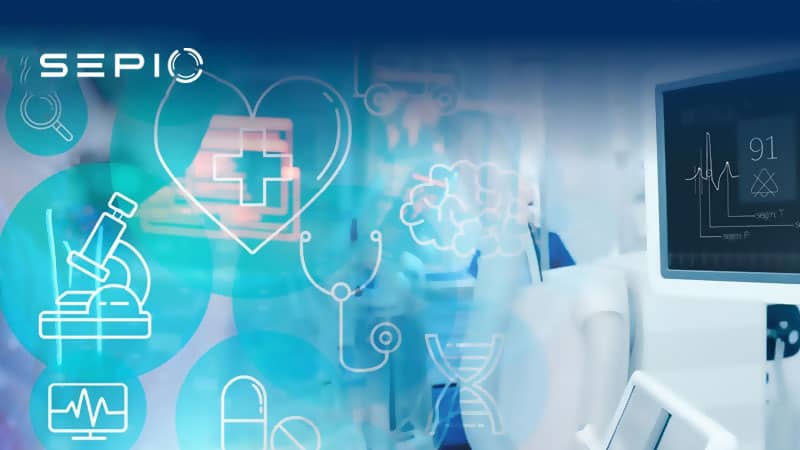Healthcare organizations are facing an ever-growing wave of cyber threats. With the increasing reliance on digital systems to store and transmit sensitive patient information, the risk of cyberattacks has never been greater. How can medical care institutions address these vulnerabilities? And why is it so critical for them to invest in comprehensive cybersecurity frameworks that protect patient data and ensure operational continuity?
The need for GRC solutions for healthcare becomes evident when considering the complexity of today’s cyber landscape. These frameworks help medical organizations manage risks and ensure that their systems comply with regulatory standards. They offer a holistic approach to cybersecurity that involves people, processes, and technology working together to minimize risks, safeguard data, and maintain operational integrity.
Table of Contents
ToggleProtecting Patient Data from Rising Cyber Threats
The healthcare sector handles some of the most sensitive data imaginable. Patient health records, insurance details, and personal information make healthcare organizations a prime target for cybercriminals. A robust cybersecurity framework can protect this data through encryption, firewalls, and other advanced measures restricting unauthorized access. With a focus on patient confidentiality, these platforms act as the first line of defense against potential breaches that could lead to identity theft or worse.
Organizations implementing comprehensive cybersecurity systems can also monitor all data traffic to ensure that sensitive information is not compromised during storage or transmission. This proactive approach safeguards data and builds confidence among patients, knowing their privacy is protected. These frameworks regularly update security measures, staying ahead of emerging threats and ensuring that medical care systems are always prepared.
Ensuring Compliance with Clinical Care Regulations
Healthcare organizations are required to comply with stringent regulations designed to protect patient privacy. Laws like HIPAA (Health Insurance Portability and Accountability Act) demand that healthcare providers maintain strict protocols for handling and securing patient data. A comprehensive cybersecurity framework helps organizations navigate these complex requirements by embedding compliance into every aspect of their cybersecurity strategy.
GRC tools feature crucial features such as regular audits and automated compliance checks. They ensure that healthcare organizations adhere to the latest regulatory standards without relying on manual processes, reducing human error and improving efficiency. Through continuous monitoring, these tools can flag potential compliance issues before they become significant problems, ensuring that the organization stays on track.
Cybersecurity frameworks also help healthcare providers keep track of compliance documentation, making it easier to demonstrate adherence to regulators when required. This streamlined process ultimately reduces the time and cost involved in compliance management.
Mitigating the Risk of Ransomware Attacks
Ransomware attacks have become increasingly prevalent in the clinical care sector. These attacks lock critical systems and data, demanding a ransom for their release. A comprehensive cybersecurity framework helps mitigate these risks by implementing strong defense mechanisms such as advanced malware detection, encryption, and regular software updates.
Reliable GRC software provides backup and recovery plans to ensure that healthcare organizations can continue operations in the event of an attack. These systems allow organizations to restore data from secure backups, reducing the impact of a ransomware attack on patient care and business continuity.
- Backup protocols ensure that medical systems can quickly recover from attacks
- Malware prevention tools proactively detect and block ransomware attempts
- Training staff to recognize phishing attempts reduces the likelihood of falling victim to scams
Enhancing Operational Efficiency and Continuity
A comprehensive cybersecurity framework contributes significantly to the overall operational efficiency of a medical organization. Standardized processes for managing IT infrastructure reduce complexity, allowing medical care providers to focus on patient care rather than dealing with IT issues. With cybersecurity embedded into daily operations, organizations can monitor systems in real-time to prevent issues before they escalate.
It also ensures that there is minimal disruption to daily operations by implementing secure systems that run smoothly without interruption. Their ability to streamline processes means that medical care providers can devote more time to delivering quality care to patients while having peace of mind that their data is secure.
Enhanced cybersecurity means fewer system downtimes, improving productivity across the organization. In environments where time-sensitive decisions are critical, maintaining continuous access to systems and data is crucial for effective patient care and operational success.
Building Trust with Patients and Partners
Trust is the foundation of any clinical care organization. Patients expect their personal and medical information to be handled with the utmost care and security. When healthcare organizations implement comprehensive cybersecurity frameworks, they signal to patients that their privacy is a top priority. This builds trust and helps foster stronger relationships between healthcare providers and their patients.
Beyond patients, these frameworks also demonstrate to partners, regulatory bodies, and insurers that the organization takes cybersecurity seriously. Whether dealing with insurance claims or collaborating with other providers, security becomes a key element of maintaining reliable partnerships.
Improving Incident Response and Recovery Capabilities
No cybersecurity system is entirely immune to attacks. When breaches or incidents do occur, a comprehensive GRC tool ensures that organizations are ready to respond effectively. These frameworks typically include detailed incident response plans that guide healthcare teams through each step of addressing and mitigating a breach.
With these systems in place, clinical care organizations can identify threats quickly, contain them, and begin the recovery process. Continuous monitoring allows security teams to detect issues in real-time, which is essential for minimizing the damage caused by cyberattacks.
Having an established recovery process also helps organizations get back on their feet swiftly, reducing the time spent offline and ensuring that patient care can continue without major disruption. Using reliable services such as Corodata medical records storage for storing backup data will bolster this recovery. This proactive approach to incident management ensures that healthcare organizations can remain resilient even in the event of a breach.
Enhancing Security Across the Entire Supply Chain
Medical organizations rely on a variety of third-party vendors, from suppliers of medical equipment to external service providers. These vendors often have access to sensitive data or systems, which means that vulnerabilities in third-party networks can impact the security of medical organizations. A comprehensive cybersecurity framework ensures that all third-party partners adhere to strict security standards, reducing risks posed by external sources.
- Vendor risk assessments ensure that suppliers meet cybersecurity requirements
- Regular audits help verify that third-party partners maintain secure systems
- Contractual security requirements hold vendors accountable for maintaining robust cybersecurity practices
Reducing Financial Risks and Costs
Cyberattacks can significantly impact clinical care organizations financially. The costs associated with a data breach, including fines, legal fees, and loss of patient trust, can quickly add up. Implementing a comprehensive cybersecurity framework helps mitigate these financial risks by preventing breaches and reducing the need for expensive emergency responses.
- Cost-effective management of cybersecurity resources reduces overall expenses
- Prevention-focused systems minimize the chances of costly data breaches
- Automated compliance checks reduce manual efforts and associated costs
Implementing comprehensive cybersecurity frameworks is crucial for the success and security of organizations. Reliable GRC solutions for healthcare provide the tools needed to manage risks effectively, ensure compliance, and protect patient data from emerging threats. As the medical sector continues to rely on digital technologies, having a solid cybersecurity infrastructure becomes essential for maintaining trust, operational efficiency, and long-term success.











